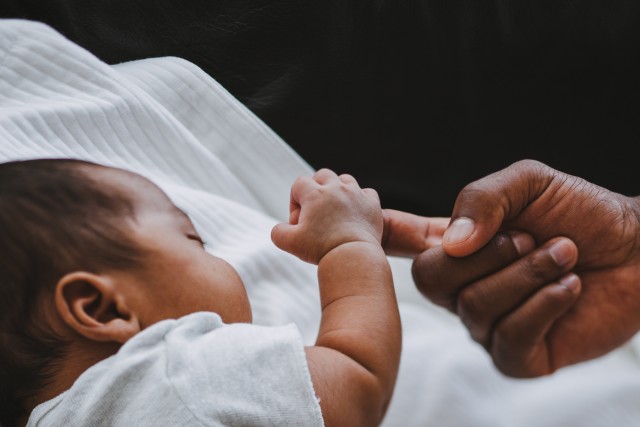Parents and children share a deep, emotional bond. This bond is what makes a parent’s instincts kick in, to care for and protect their child. This is extremely important for the child’s sense of worth and self-esteem.
Building this bond is vital, and usually begins during the early stages of pregnancy. But what if you are not carrying your own child, how do you and your family begin the bond that will last a lifetime?
Surrogacy and Bonding
For babies who are born from surrogacy, the bonding doesn’t have to wait until the intended parents take baby home!
Even from the early stages of pregnancy, the baby has a strong sense of smell and hearing. Through touch, smell and hearing, the baby attaches themselves to the woman carrying them.
One thing intended parents can do from the beginning is talk to the baby. The more the baby hears the intended parent’s voices, the more familiar and comfortable baby will become. As intended parents, you can even send tapes of your voice and have your surrogate play them for the baby.
If, as intended parents, you are able to, be part of the pregnancy as much as possible. Attending doctor appointments, having a baby shower and even decorating the nursery are all ways to help intended parents feel involved throughout the whole journey.
Taking the time to organize and prepare your home before the birth of your baby is vital. Nesting your home, preparing the nursery and baby proofing the house, gives intended parents a feeling of connection to the baby, and provides the feeling of parental protection, which is a vital aspect of bonding.
Before the big day arrives, intended parents will want to make sure they have everything in order. Packing hospital bags, preparing meals ahead of time and putting the finishing touches on the nursery will make the transition easier for the parents.
Since the baby already has a connection to the surrogate mother, providing a transitional item is recommended. Having the surrogate mother sleep with a teddy bear, which she plans on giving the child, gives a newborn a sense of familiarity and comfort, just from the scent of the surrogate mother.
When a baby is born, they need to confirm all the things they have been hearing, smelling and feeling while in the womb. Allowing the surrogate mother to hold the child after birth allows the baby to confirm their senses on the outside world, which is vital for their growth and development.
Once intended parents take baby home, skin-to-skin contact between baby and parent is highly recommended. The close contact will help both parent and child to build a physical bond.
Intended parents must always remember that when their newborn is fussy or upset, it has nothing to do with surrogacy. Try not to beat yourself up about not being able to carry your own child. Grieve your losses throughout the pregnancy and once baby is born understand that babies are naturally fussy, and it has nothing to do with surrogacy.
Don’t forget about the surrogate mother! The whole goal of surrogacy is to create or complete a family. Nothing will bring joy to the surrogate mother like seeing her efforts complete. Try to stay in contact, as much as you’re comfortable with, to have your surrogate mother see the good she has done.
Bonds between child and parent are extremely important for both the child and the parent. Bonding with their parents is what allows a child to feel comfortable in almost all aspects of their life, and is what allows a parent’s instincts to kick in.
Bonding with your child during the surrogate’s pregnancy will help make for a smooth transition when bringing baby home.
We couldn’t have said it better, that is why this is a direct repost from Simple Surrogacy

